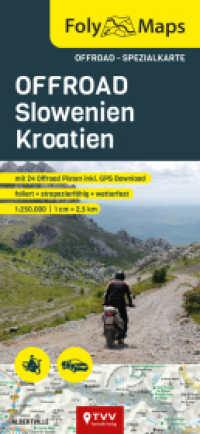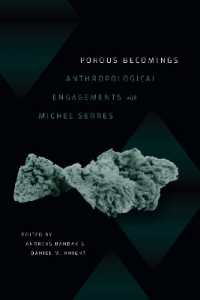- ホーム
- > 洋書
- > 英文書
- > Science / Mathematics
Full Description
The promotion of knowledge was a major preoccupation of the Victorian era and, beginning in 1831 with the establishment of the British Association for the Advancement of Science, a number of national bodies were founded which used annual, week-long meetings held each year in a different town or city as their main tool of knowledge dissemination. Historians have long recognised the power of 'cultural capital' in the competitive climate of the mid-Victorian years, as towns raced to equip themselves with libraries, newspapers, 'Lit. and Phil.' societies and reading rooms, but the staging of the great annual knowledge festivals of the period have not previously been considered in this context. The four national associations studied are the British Association for the Advancement of Science (BAAS), the National Association for the Promotion of Social Science (NAPSS), the Royal Archaeological Institute (RAI) and the Royal Agricultural Society of England (RASE), who held annual meetings in 62 different provincial towns and cities from 1831 to 1884. In this book it is contended that these meetings were as important as royal visits and major civic ceremonies in providing towns with an opportunity to promote their own status and identity. By deploying a wealth of primary source material, much of which has not been previously utilised by urban historians, this book offers a new and genuinely Britain-wide perspective on a period when comparison and competition with neighbouring places was a constant preoccupation of town leaders.
Contents
Contents: Introduction; Movable feasts: Victorian knowledge associations and the evolution of the annual meeting; The bidding contest; Running the meeting; Experiencing the meeting; Beyond the meeting: host towns and the parliaments of science effect; Conclusion; Appendices; Bibliography; Index.






